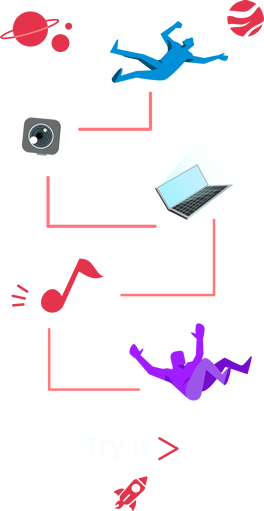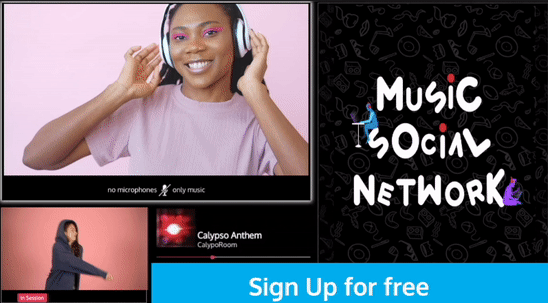Intellectual property challenges in music social networks

Table of content
Intellectual property challenges in music social networks - Introduction
Welcome to the captivating universe of music social networks! Have you ever thought about how these exciting digital platforms are reshaping the way we enjoy and share our favorite tunes?
Well, let's embark on a journey to explore this phenomenal change.
In our highly connected world, music social networks have quickly risen to prominence, bringing musicians and music lovers closer than ever before.
These innovative platforms, from industry leaders like Spotify to vibrant newcomers like CalypsoRoom, are revolutionizing the way we consume music, opening up an array of exciting possibilities for us all.
For the die-hard music fan, these platforms present a whole new way to enjoy and discover music, transcending geographical boundaries and musical genres.
But, as with any seismic shift, these advancements come with their fair share of challenges. One area we should pay particular attention to is intellectual property rights.
The solutions to these challenges hold the key to a future where music social networks can thrive in harmony with artists' rights.
Let's make sure that while we're enjoying the transformative power of music, we're also doing our part to keep the rhythm flowing smoothly.
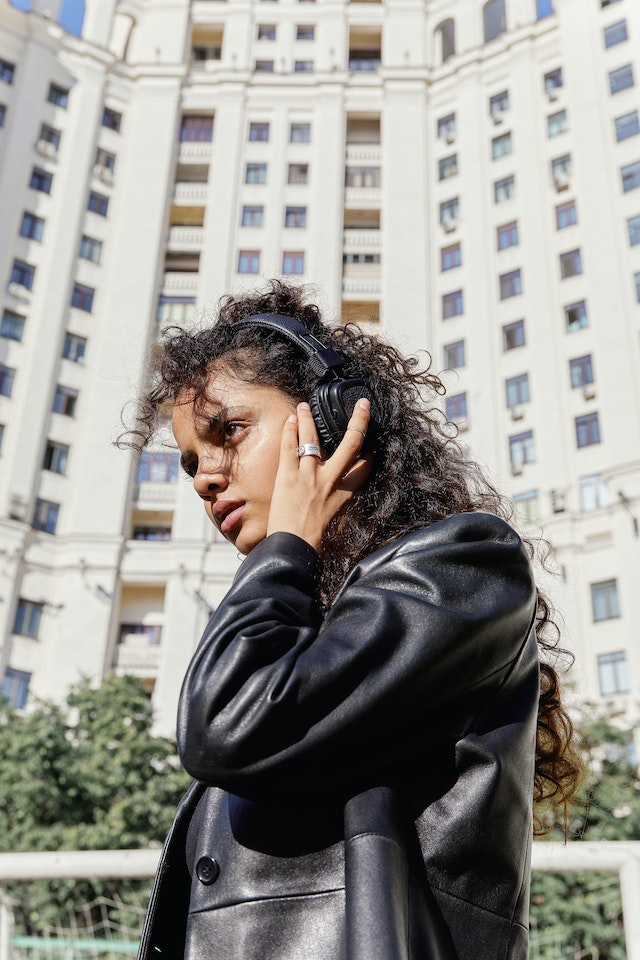
KEY TAKEAWAYS
Understanding Intellectual Property (IP) in Music: IP is a term that signifies the creative elements an artist brings to their work, including their melodies, lyrics, and production methods. The protection of an artist's IP is fundamental in the music industry to ensure they receive recognition and rewards for their creativity.
Role of Copyright Laws: Copyright laws play an essential role in safeguarding an artist's IP by defending their right to control how their work is used. These laws are critical to ensuring fair play and fostering creativity in the music industry, thereby respecting the effort an artist puts into creating music.
The Evolution of Music Consumption and IP Challenges: As music consumption has evolved from vinyl records to digital streaming, the challenges related to IP have also grown. Intellectual property's importance has only increased with these changes, necessitating continued protection of artists' rights.
Music Social Networks and Their Influence: Platforms like Spotify and SoundCloud are more than just music libraries; they are communities where music enthusiasts and creators converge. The emergence of music social networks has transformed passive listening into active engagement, shaping our music consumption patterns and creating an interconnected musical community.
IP Challenges in Music Social Networks: While these platforms have revolutionized music consumption, they've also introduced a myriad of IP concerns. Licensing issues, unauthorized remixing, illegal downloads, and piracy have become significant problems in this digital age, leading to substantial financial losses in the music industry and violation of artists' rights.
CalypsoRoom's Approach to Addressing IP Challenges: CalypsoRoom is an emerging platform that is striving to revolutionize music listening while also addressing IP challenges. By meticulously gathering information on sound recording and publishing rights before uploading music, and compensating artists on a per-play basis, the platform ensures respect for artists' IP rights while providing a unique listening experience.
Defining intellectual property and its importance in the music industry
Let's start our journey by unlocking a term that might sound a bit intimidating but is vitally important in the music industry - Intellectual Property, or simply IP.
All of these elements, and more, form an artist's intellectual property.
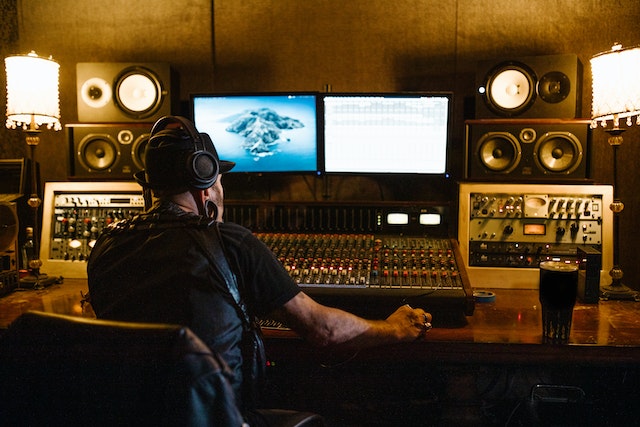
So, how do we keep this toolbox safe and ensure that only the artist, or those the artist permits, can use these tools?
Here's where copyright laws come into play. These laws are the guardians of an artist's IP, ensuring that they are recognized and rewarded for their creative genius.
However, the relationship between intellectual property and music has not always been smooth sailing.
Over the years, as music has morphed and evolved, so too have the challenges related to IP.
From the age of vinyl records to the digital streaming era we are in today, each phase has brought its own set of hurdles.
At the heart of these changes, the importance of intellectual property has only grown.
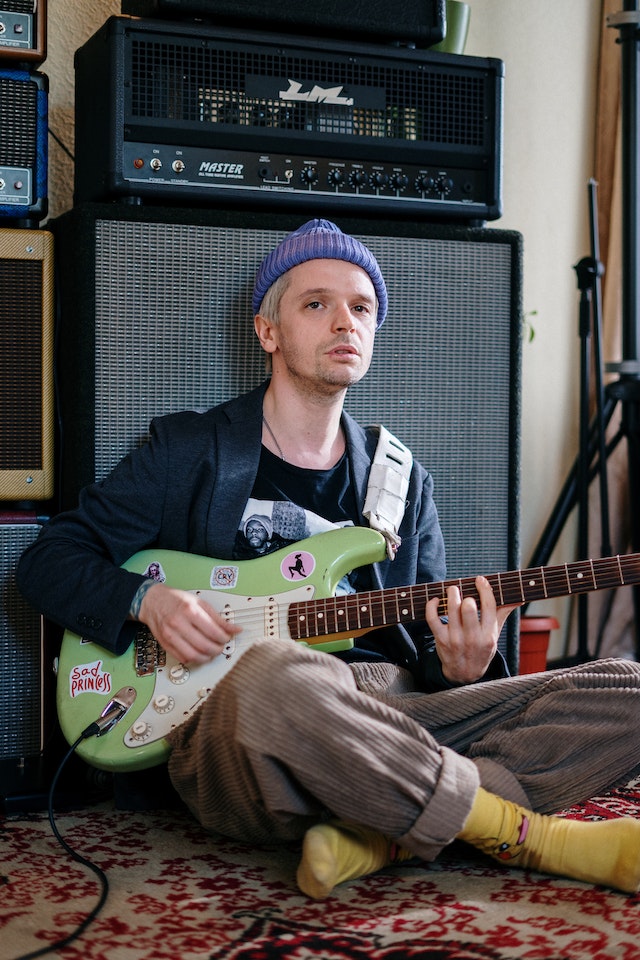
As we move forward, remember that every beat, every lyric, and every melody you hear is a piece of someone's intellectual property.
And as listeners, we share in the responsibility to respect and uphold these rights.
This way, we contribute to a thriving musical ecosystem where creativity is nurtured, talent is rewarded, and music continues to inspire and move us in ways like nothing else can.
The new paradigm: music social networks
Let's take a step forward into the vibrant landscape of music social networks.
Ever wondered how music and the internet have intertwined to alter the way we experience melodies, rhythms, and lyrics? Let's explore this together.
Music has always been a social experience, a way to bring people together. Yet, it's fascinating to see how this dynamic has evolved with the advent of music social networks.
Today, platforms such as Spotify and SoundCloud have become more than just libraries of songs; they are thriving communities where music enthusiasts, creators, and aficionados converge.
These platforms have been game-changers, molding our music consumption patterns.

It's not just about passive listening anymore; it's an active engagement with music that makes us part of a larger, interconnected musical community.
The latest trend adding to this revolution is synchronized music listening, and here's where platforms like CalypsoRoom step in.
Imagine being miles apart yet listening to the same beat, tapping your feet in unison, sharing the same musical moment - sounds magical, right?
Well, it's no longer a fantasy. CalypsoRoom, and platforms like it, make it possible for us to share our music, not just via playlists, but in real-time experiences.
So, next time you put on your headphones, remember, you're not just a listener. You're a part of a global symphony, a contributor to an ever-evolving musical narrative.
Music social networks have opened up a whole new world of possibilities, making every melody a shared journey.
So let's embrace this new paradigm and continue to celebrate the universal language of music.
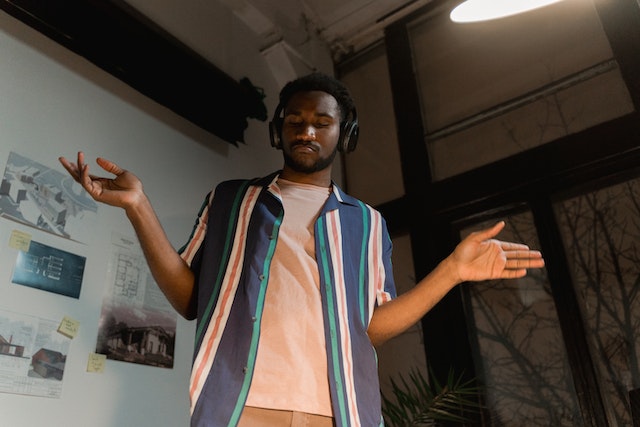
Intellectual property challenges in music social networks
Let's dive a little deeper into the world of music social networks and touch on a pressing issue - Intellectual Property (IP) challenges.
Imagine you're an artist, pouring your heart and soul into creating a piece of music, only to find it being shared, remixed, or even pirated without your permission.
Quite disheartening, right? This is one of the numerous IP challenges musicians face today.
Licensing issues, unauthorized remixing, illegal downloads, and outright piracy have emerged as significant problems in this digital age of music.

The music industry is estimated to lose $12.5 billion annually to piracy. In fact, 35% of American music buyers have admitted to acquiring at least one song from a pirated source.
Think about that only in the U.S. , the economy loses $12.5 billion in total output annually as a consequence of music theft.
Each song is a creation, a property, and it's crucial to respect and protect that. While music social networks facilitate easy access and sharing, they also have a responsibility to ensure that this doesn't come at the cost of an artist's rights.
Platforms have a pivotal role to play in curbing IP infringements. From enforcing stringent policies against piracy to collaborating with artists and labels for licensing agreements, these networks must step up their game.
It's not just about providing a platform for music; it's about creating an ecosystem that respects and safeguards the rights of its creators.
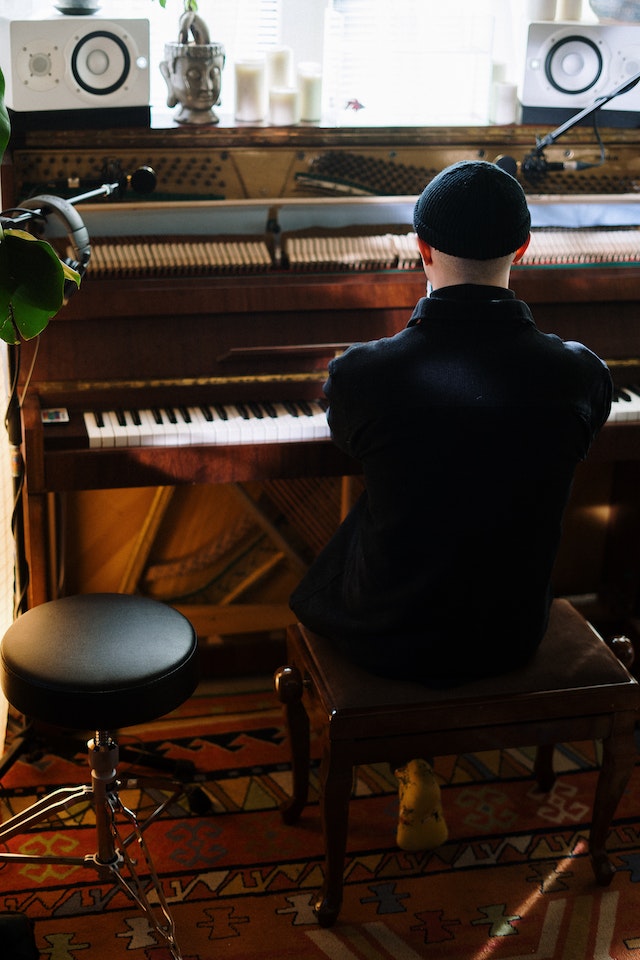
So, as we groove to our favorite tunes and explore new ones on these platforms, let's also spare a thought for the creators.
After all, without them, this world of music would be quite silent, wouldn't it?
Remember, every song you enjoy is a result of someone's hard work and creativity, and it's only fair that they get their due.
CalypsoRoom: an emerging platform and its potential solutions
Imagine a platform that not only transforms the way we listen to music but also addresses significant intellectual property challenges in the process.
Let's talk about CalypsoRoom, an emerging music social network that allows people to listen to music together, connected by webcam.
This innovative platform is stepping up to revolutionize the musical experience while still ensuring respect for artists' intellectual property rights.
What's impressive about CalypsoRoom is its meticulous approach to music uploading.
This cautious practice reaffirms their commitment to respecting and protecting the intellectual property rights of artists.
Further cementing its innovative stance, CalypsoRoom offers artists compensation on a per-play basis. This means that every time their music is reproduced in a “Video Music Session”, they get paid.
This model not only rewards artists for their creativity but also provides an impetus for more artists to share their music, secure in the knowledge that their intellectual property rights will be respected.
They might just be the key to harmonizing the love for music with the respect for artists' rights, which is music to everyone's ears.
So, let's tune in to this new rhythm and embrace this evolving facet of music consumption.

Legal measures, policies and frameworks
In the fast-paced world of music social networks, it's important to take a moment and consider the rules of the game.
Let's delve into the existing legal measures, policies, and frameworks that are designed to protect the intellectual property (IP) rights on these platforms.
As a starting point, we have copyright laws. These laws give artists the exclusive rights to use, produce, and sell their music.
It sounds like a good plan, right? Yet, with the rise of music social networks, these laws face a daunting challenge.
With easy access to music and simpler ways of sharing and remixing, it's become increasingly difficult to monitor and control copyright infringements.

Moving on, we have licensing agreements. These are contracts where the rights holders allow music platforms to use their music in return for royalties.
But again, the effectiveness of these agreements is put to the test with the advent of music social networks.
Then there are policies put in place by the platforms themselves. These policies often include strict rules against unauthorized sharing and downloading of music.
However, implementation and enforcement of these policies pose their own set of challenges.
Are these measures effective? Well, they do play a crucial role in protecting IP rights. But, it's fair to say that they still have a long way to go to adequately address the unique challenges posed by music social networks.
There is an urgent need for these policies and measures to evolve, just as quickly as the technology they aim to regulate.
Let's hope that as the music keeps playing, so will the efforts to strike the right chord between enjoying music and protecting artists' rights.

The way forward
As we navigate the melodious landscape of music social networks, it's clear that we're in need of some fresh tunes when it comes to managing intellectual property rights.
Let's explore some potential solutions and strategies that can hit the right notes.
So, how about licenses designed specifically for the unique structure of music social networks? These licenses could cover different types of uses, from simple listening to sharing and remixing music.

Next up, technological solutions. We're in a digital era where technology has an answer to almost everything. Why not use it to our advantage?
We could implement advanced tracking systems offered by blockchain technology that keep an eye on where and how music is being used on these platforms.
This way, we can ensure artists are adequately compensated for their music, and at the same time, control unauthorized usage.
Lastly, we can't forget about regulatory changes. Yes, we have copyright laws, but perhaps they need a tune-up to better suit the music social networks.
Stepping into the future, let's keep the music playing, but let's also play it right. It's a dance between the enjoyment of music and the protection of artists' rights, a dance that we must continue to perfect.
Remember, in a world that's constantly changing and evolving, so too must our strategies and solutions. Let's face it, the music won't stop, and neither should we.

Intellectual property challenges in music social networks - Conclusion
As we move forward, it's evident that the rhythm of change won't slow down. The future holds new licensing models, technological innovations, and regulatory changes.
It's a melody that will require all of us—artists, listeners, platforms—to sing in tune. The harmony of our musical enjoyment depends on our collective vigilance and innovative thinking.
And now, let us hit a final note. If you're curious to hear more of this rhythm, why not give CalypsoRoom a try?
Feel the magic of synchronized music listening, connect with fellow music lovers, and play your part in a platform that values and respects the hard work of artists.
Head over to ourblog homepage for more information and immerse yourself in the world of music social networks where intellectual property rights sing in perfect harmony with digital innovation.
Let's keep the music playing, together.
Thanks for reading,
The CalypsoRoom Team
Frequently Asked Questions (FAQs)
What are the main intellectual property challenges in music social networks?
The main intellectual property challenges in music social networks are unauthorized use of copyrighted music, difficulty tracking usage due to the platform's vastness, and navigating the global landscape of varying copyright laws.
How does copyright infringement occur on social media platforms?
Copyright infringement on social media platforms happens when users upload or share copyrighted music without the proper permissions or licenses, often because of a lack of awareness or understanding about copyright laws.
What can artists do to protect their music rights on social networks?
Artists can protect their music rights on social networks by registering their work with copyright offices, employing digital rights management tools, and constantly monitoring for unauthorized use of their work.
Are there any legal issues specific to music social networks?
Legal issues specific to music social networks include accurately identifying copyright holders for compensation, enforcement of global and regional copyright laws, and issues related to user-generated content and its legality.
How do fair use guidelines apply to music on social media?
Fair use guidelines apply to music on social media by allowing limited usage of copyrighted music for purposes like criticism, comment, news reporting, teaching, scholarship, or research, but its boundaries are often blurred in the social media context.
What is the role of licensing in music distribution on social networks?
Licensing plays a crucial role in music distribution on social networks by providing a legal framework for the use and sharing of music, ensuring that creators and rights holders receive due compensation for their work.
back
Written by CalypsoRoom Editorial Team
The CalypsoRoom Editorial Team is a skilled and diverse group of writers, researchers, and industry specialists who have access to Calypso's data and information in order to give you broad knowledge about the music industry as well as helpful advice to help you manage your music and dancing career.
Updated August 2023
Company number: 681223
James's Walk 31, Dublin, Ireland
contact@calypsoroom.com
+353 (89) 435 8928


